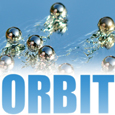Learning together developing wikis: Difference between revisions
No edit summary |
No edit summary |
||
| Line 6: | Line 6: | ||
|subject=Teacher Education | |subject=Teacher Education | ||
|resourcenumber=TE0035 | |resourcenumber=TE0035 | ||
|age=Secondary, KS3, KS4 and 6th Form | |age=Secondary, KS3, KS4 and 6th Form | ||
|content=Course information<br />Learning outcomes<br />Course schedule<br />Introduction<br />Introducing ourselves<br />Introducing wikis<br />Wikis and e-safety<br />Exploring wikis<br />Thinking about structure<br />Finding relevant examples<br />Planning to use a wiki<br />Using the wiki for teaching and learning<br />Reflection<br />Shared learning<br />Evaluation and certification<br />References | |content=Course information<br />Learning outcomes<br />Course schedule<br />Introduction<br />Introducing ourselves<br />Introducing wikis<br />Wikis and e-safety<br />Exploring wikis<br />Thinking about structure<br />Finding relevant examples<br />Planning to use a wiki<br />Using the wiki for teaching and learning<br />Reflection<br />Shared learning<br />Evaluation and certification<br />References | ||
|strategy=When used properly, wikis are powerful tools that enable sharing of information and knowledge. This Secondary course explores how they can be used in the classroom to improve teaching and learning and enable collaboration on group projects. | |strategy=When used properly, wikis are powerful tools that enable sharing of information and knowledge. This Secondary course explores how they can be used in the classroom to improve teaching and learning and enable collaboration on group projects. | ||
|Learning Objectives=At the completion of this course, students should be able to:<br />* incorporate the use of a wiki with learners in their school and subject contexts as appropriate, <br />* reflect on, and discuss, the impact of the use of a wiki on learning.<br />'''Practical skills'''<br />At the completion of this course, students should be able to:<br />* edit a wiki page, <br />* select a wiki tool appropriate for intended use, <br />* set up a wiki,<br />* incorporate text and other media on a wiki page,<br />* manage users (authors, reviewers etc) of a wiki.<br />'''Knowledge and understanding'''<br />At the completion of this course, you should be able to demonstrate:<br />* that you know what a wiki is, <br />* that you know what wikis may be used for in education, <br />* an understanding of the issues involved in using wikis in the classroom.<br />'''Cognitive skills'''<br />At the completion of this course, students should be able to:<br />* critically review the use of wikis in educational contexts and share these reviews with others, <br />* discuss different ways in which wikis might be used in learning contexts in schools. | |||
Students will either use a wiki on your school’s learning platform or, if this is not available to them, we will explain how to sign up to use one of the free online wiki services. | |||
|additional resources= | |additional resources= | ||
|useful information= | |useful information= | ||
Revision as of 14:07, 28 May 2012
- Blog skills for subject specialists
- Copyright: keep it legal
- ESafety KS1
- Getting a buzz out of blogging
- ICT support in education (practitioner)
- Introduction to games
- Learning platforms all aboard
- Learning together developing wikis
- Learning together introducing wikis
- Making games and motivating learners KS2
- Multimedia skills and applications
- Researching and evaluating a digital game for the classroom
- Sharing ideas - developing wikis (primary)
- Sharing ideas introducing wikis
- The potential of technology
- Using the game Spore to motivate learners KS3
- Website development skills and applications
- Working with multimedia
- Wow them with wikipedia
- Writing using multimodal approaches KS1
- Writing using multimodal approaches KS3
About. Course information
Learning outcomes
Course schedule
Introduction
Introducing ourselves
Introducing wikis
Wikis and e-safety
Exploring wikis
Thinking about structure
Finding relevant examples
Planning to use a wiki
Using the wiki for teaching and learning
Reflection
Shared learning
Evaluation and certification
References
Pedagogical content. When used properly, wikis(tool) are powerful tools that enable sharing of information and knowledge. This Secondary course explores how they can be used in the classroom to improve teaching and learning and enable collaboration(ta) on group work(ta) projects. It also covers important considerations such as e-safety(topic) and e-skills(topic) as well as ways to engage in sharing practice(topic). (edit)
| Resource details | |
| Title | Learning together developing wikis |
| Topic | [[Topics/E-safety|E-safety]], [[Topics/Sharing practice|Sharing practice]], [[Topics/Wikis|Wikis]], [[Topics/E-skills|E-skills]] |
| Teaching approach | [[Teaching Approaches/Group work|Group work]], [[Teaching Approaches/Collaboration|Collaboration]] |
| Learning Objectives | At the completion of this course, students should be able to: |
| Format / structure | Various online activities. |
| Subject | [[Resources/Teacher Education|Teacher Education]] |
| Age of students / grade | [[Resources/KS5|KS5]], [[Resources/Secondary|Secondary]], [[Resources/Higher|Higher]], [[Resources/KS4|KS4]], [[Resources/KS3|KS3]]
|
| Related ORBIT Wiki Resources | |
| Other (e.g. time frame) | Duration of the course: 20 hours over eight weeks |
| Files and resources to view and download | http://www.vital.ac.uk/community/mod/oucontent/view.php?id=1156. Users must register with the VITAL website (free registration) before they can access the resource.
|

